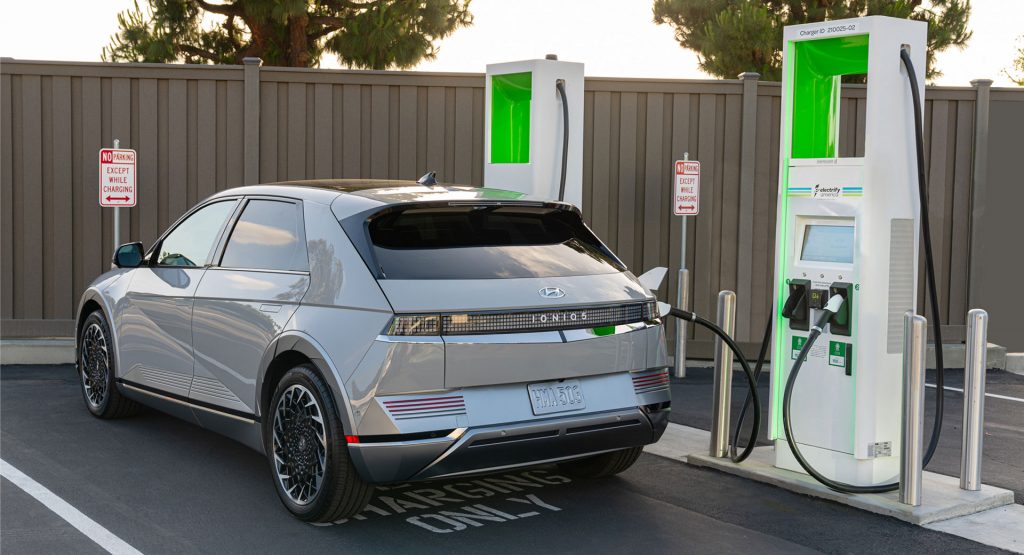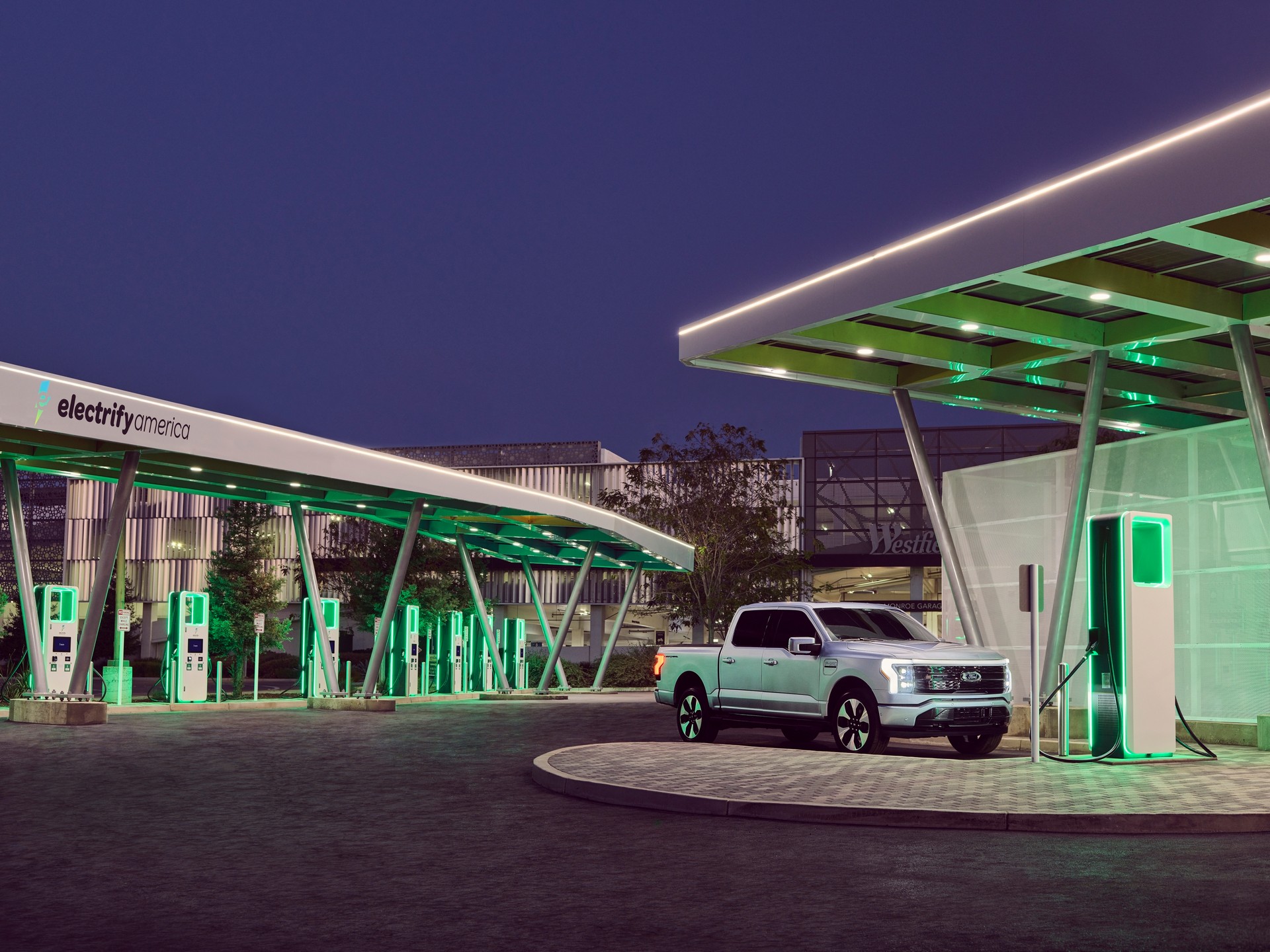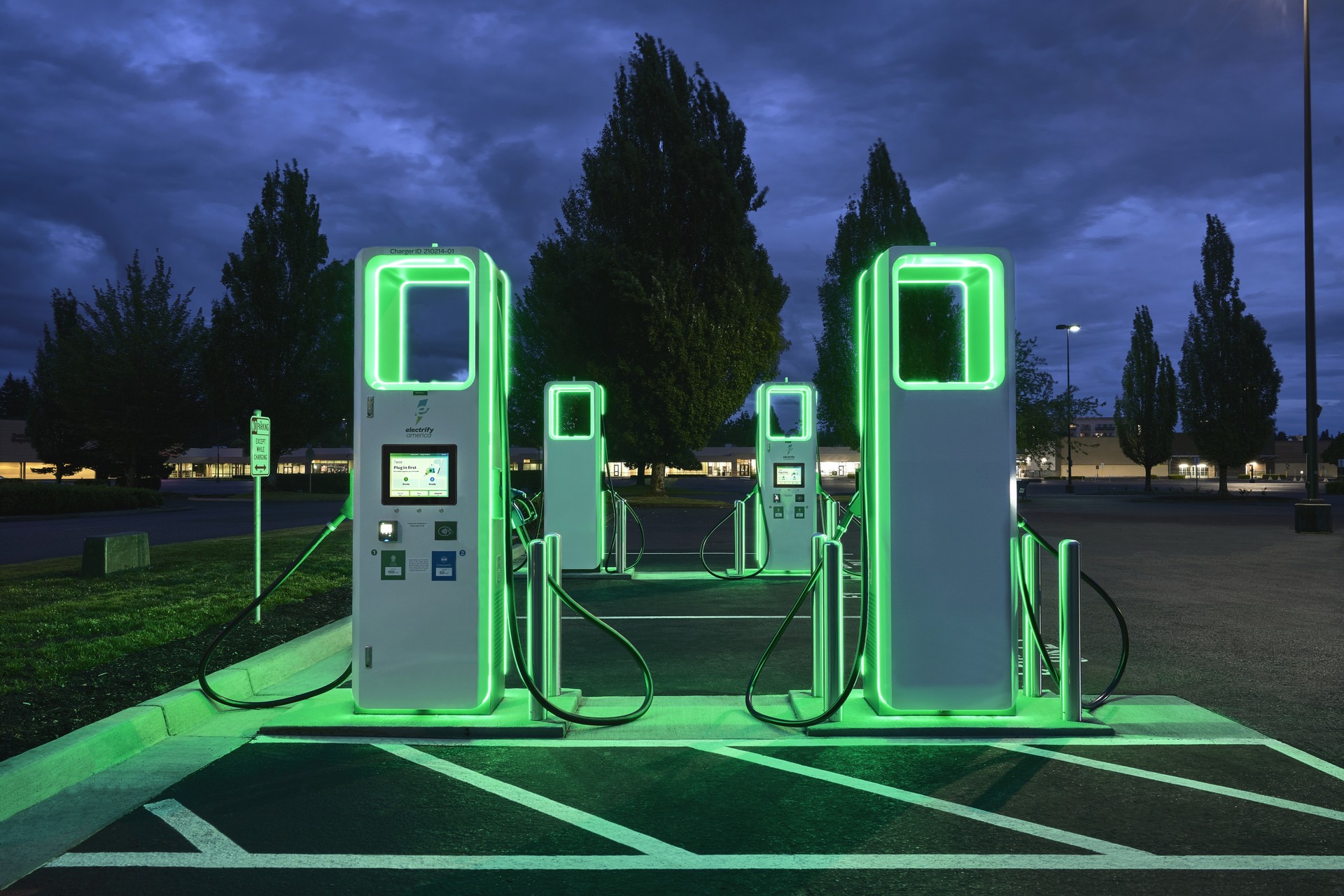Following the passage of a massive infrastructure bill last year, the U.S. Departments of Transportation and Energy have announced nearly $5 billion will be made available to states in order to build out a national electric vehicle charging network.
Billed as an “important step towards making electric vehicle charging accessible to all Americans,” the funds will be distributed over five years to create a network of charging stations along “designated Alternative Fuel Corridors, particularly along the Interstate Highway System.”
$615 million is available this year and Texas is the clear winner as they’ll be eligible to receive $60,356,706. The Lone Star state is followed by California’s $56,789,406 and Florida’s $29,315,442 in funding. However, states must submit an EV Infrastructure Deployment Plan before they can access the funds.
Also Read: Electrify America More Than Doubling Its Charging Network, Will Have 1,800+ Stations By End Of 2025
Small and rural states get shortchanged in the process as Wyoming gets a mere $3,963,841 which isn’t much more than Maine’s $2,856,158. To help address this imbalance, a “second, competitive grant program designed to further increase EV charging access in locations throughout the country, including in rural and underserved communities, will be announced later this year.”
While there’s no shortage of rules and regulations, the government is aiming to have “EV chargers placed every 50 miles (80 km) and within 1 mile (1.6 km) of the highway with exceptions” along certain routes. The government also wants there to be a nationwide network of 500,000 EV chargers by 2030 to ensure a “convenient, reliable, affordable, and equitable charging experience for all users.”
The Deputy Federal Highway Administrator, Stephanie Pollack, said “Americans need to know that they can purchase an electric vehicle and find convenient charging stations when they are using Interstates and other major highways. The new EV formula program will provide states with the resources they need to provide their residents with reliable access to an EV charging station as they travel.”










